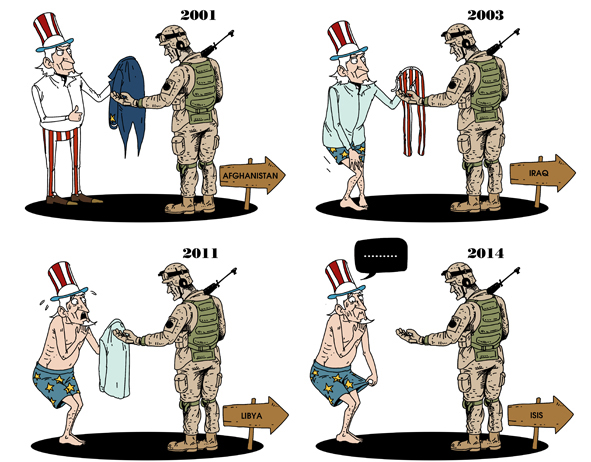The US has no strategy to fight a war with IS
- By Zhao Jinglun
 0 Comment(s)
0 Comment(s) Print
Print E-mail China.org.cn, September 2, 2014
E-mail China.org.cn, September 2, 2014
|
|
|
[By Li Feng/China Daily] |
The United States has called the Islamic State (IS) the greatest threat in the Middle East. Yet President Barack Obama has admitted that "we don't have a strategy yet" for fighting a war with IS.
After some hesitation, the U.S. military sent fighter planes and drones to attack IS forces, mainly in support of the Kurds' Peshmerga militia which captured the Mosul Dam. The Kurds have been a longtime U.S. dependent whose authoritarian leader Barzani has long harbored designs for independence. One-sided U.S. support for the Kurds, who now control major oil resources, does not bode well for Iraqi unity, especially since the Kurds are already in a serious dispute with the central government over the distribution of oil revenue.
Obama has also sent 300 military advisors to train Iraqi security forces (recall what the U.S. did in Vietnam), but he made it clear that he will not send combat troops back into Iraq.
U.S. Secretary of Defense Chuck Hagel has said that the U.S. is providing weapons and other military aid to Iraqi and Kurdish forces fighting IS.
Obama has called on friends and allies to band together to fight the militants. Those "friends and allies" include the Gulf states, which have bankrolled the same jihadists that the United States is now fighting. Britain has offered the help of its SAS special forces, and France and Germany will provide the Kurds with weapons.






